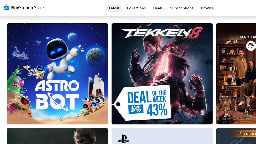California's New Law Will Force Storefronts to Disclose That Buyers Don't Actually Own Their Digitally Purchased Media - IGN



California Governor Gavin Newsom has signed a bill into law that won't stop companies from taking away your digitally purchased video games, movies, and TV shows, but it'll at least force them to be a little more transparent about it.
As spotted by The Verge, the law, AB 2426, will prohibit storefronts from using the words "buy, purchase, or any other term which a reasonable person would understand to confer an unrestricted ownership interest in the digital good or alongside an option for a time-limited rental." The law won't apply to storefronts which state in "plain language" that you're actually just licensing the digital content and that license could expire at any time, or to products that can be permanently downloaded.
The law will go into effect next year, and companies who violate the terms could be hit with a false advertising fine. It also applies to e-books, music, and other forms of digital media.
Alternatively, make laws protecting digital ownership and the right to resell that ownership on any market.
Yeah, this feels like validating a toxic business model when they should be dismantling it
Why would a high profile politician in the United states do something that is for the benefit of their people? Weak leaders do not generally make strong decisions.
This will start to protect some people, and bring awareness to the issue, allowing for further regulation in the future, once public demand for it has increased
We’re calling it Proposition #66 😉
My first thought was that it would be a nightmare verifying who owns what and how to transfer ownership.
Then it occurs to me, could this a legitimate use of blockchain?
There are a ton of legitimate uses for blockchain, but so many scammers loved it that it killed any momentum to use it where it works.
Yeah, there's nothing wrong with blockchain technology, but Surprise! the people most interested in unregulated financial systems are thieves and scammers. Who could have guessed.
Each new token needing more computing power is not an issue?
This is a constraint designed into bitcoin to produce artificial scarcity so that the volume of tokens doesn't massively inflate and destroy their value. A blockchain doesn't have to operate this way if the goal is to produce unique tokens as identifiers rather than as currency.
Any time you see the word "Blockchain" substitute "distributed public database" instead. And then consider if the distributed part contributes in any way.
For example, if you have the movie on apple movies, and you want to sell that movie to a friend, you take their money and initiate the transfer of ownership from writhing apple movies.
Of course, you’re responsible for the money transaction.
this is how college works too. textbooks are mostly digital e-books now. same price as the print versions, but of course impossible to buy used or sell back, and your license (and access) expire after a year. some of them disable copy and paste and limit printing to a couple pages. oh, you got a book you actually wanted to keep? fuck you.
I remember when this was first starting, the digital copies were like 30% cheaper. A lot of people, including myself, took them up on it because it made most things easier. (Especially when publishers would be coming out with new editions every year and many profs just made the new edition the required one regardless of any substantial differences)
and look how far we've come...
I remember that. We'd be told digital copies were cheaper, but those copies (and older versions of the textbook) wouldn't include access keys to additional content that our professors required us to have. In other words, if we didn't have the absolute latest textbook (and/or paid an additional fee for an individual access key), we couldn't do our homework. It's been years since I've been in school, but I find it hard to imagine textbook publishers have stopped that money-grab. Can any current students confirm/deny if that's still the case?
Not a current student, but know some in tech programs. At least in colleges (as opposed to universities), a lot of professors have been moving away from textbooks. But maybe the students I know are just lucky, lol
There are still publishers who do exactly what you describe. Pearson was doing maybe 10% off for the digital copy. You could buy used textbooks, but then you'd need to buy the "digital pass" for the homework, which was more than half the cost of the book (and it wouldn't give any digital access to the book itself).